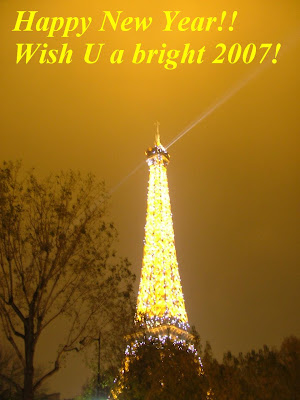上星期的某個夜晚,路過 扎有二百多
 個營地的Saint-Martin Canal,拿起相機拍了幾張照片。兩三個人圍著一張長櫈,其中一個人從袋子裡拿出三雙運動鞋,放在長櫈上,我拍了下來。那人緊張地向我衝過來,要搶去我的相機。我立刻對他說,我把相片刪去好了﹗第一次感都自己在北京遇上了公安。然後在他的監視下,刪去了一張,原來還保有一張。朋友來幫我解圍,他們的鞋子已經收起了,然後向我朋友抱怨,說我獵奇心態才拍他們照片,「我們不是猴子﹗」我想拍的,是他們的生活現實,沒有絲毫不尊重的意思。但對他們來說,或許這種心態已經是獵奇了。但直覺告訴我,事情並不那麼簡單,因為他們緊張,但不憤怒,很可能他們是在做黑市交易,貨品是 -- 鞋子,求生工具之一。
個營地的Saint-Martin Canal,拿起相機拍了幾張照片。兩三個人圍著一張長櫈,其中一個人從袋子裡拿出三雙運動鞋,放在長櫈上,我拍了下來。那人緊張地向我衝過來,要搶去我的相機。我立刻對他說,我把相片刪去好了﹗第一次感都自己在北京遇上了公安。然後在他的監視下,刪去了一張,原來還保有一張。朋友來幫我解圍,他們的鞋子已經收起了,然後向我朋友抱怨,說我獵奇心態才拍他們照片,「我們不是猴子﹗」我想拍的,是他們的生活現實,沒有絲毫不尊重的意思。但對他們來說,或許這種心態已經是獵奇了。但直覺告訴我,事情並不那麼簡單,因為他們緊張,但不憤怒,很可能他們是在做黑市交易,貨品是 -- 鞋子,求生工具之一。鞋子,一雙扎實的鞋子,對終日在街頭闖蕩的人是必需品。所以在Harold Pinter 的 The Caretaker 裡, Davies 需要一雙舒服又扎實的鞋子才能去 Sidcup。但有了這樣的一雙鞋子,也就意味著他必須離開 Aston 及 Mick的家 , 再次踏上他那漫長的流浪生涯。所以,他拒絕試鞋子,直說,「鞋子不合穿」。
正因為一旦穿上了鞋子,我們就要離開,所以戈戈很想脫下他的靴子,留下來。Samuel Beckett 在 Waiting for the Godot 裡,一開場就讓戈戈坐在一個墳墓狀的路邊土敦上,努力地想要脫掉他的靴子。但靴子太緊,枷鎖般地鉗著他,脫不下。流浪是無止境的。或許,停下來的時候,就是在墳墓裡。這叫做安息。
 電影上,最深刻的是伊朗導演 Majid Majidi 的《小鞋子》(The Children of Heaven)。兩兄妹因為家裡窮不想為父親增添壓力而兩人共穿一雙又破又爛的鞋子,哥哥上午穿去上學,中午跑回家轉讓鞋子給妹妹上下午班去。後來,哥哥努力參加賽跑,一心想要取得季軍,因為獎品是一雙鞋子。衝刺前,哥哥被人撞倒,被扶起來時,他問︰「我得了季軍嗎?」「不,是冠軍﹗」站在頒獎台上,哥哥看著那雙鞋子和自己腳上那更加殘破的球鞋,流出了眼淚。
電影上,最深刻的是伊朗導演 Majid Majidi 的《小鞋子》(The Children of Heaven)。兩兄妹因為家裡窮不想為父親增添壓力而兩人共穿一雙又破又爛的鞋子,哥哥上午穿去上學,中午跑回家轉讓鞋子給妹妹上下午班去。後來,哥哥努力參加賽跑,一心想要取得季軍,因為獎品是一雙鞋子。衝刺前,哥哥被人撞倒,被扶起來時,他問︰「我得了季軍嗎?」「不,是冠軍﹗」站在頒獎台上,哥哥看著那雙鞋子和自己腳上那更加殘破的球鞋,流出了眼淚。關於鞋子的遐想還有很多很多。但人們總愛把它和女人連在一起,當中不能不提鬼才導演 Almodovar 和他的 《情迷高跟鞋》(Tacones Lejanos, 1991)。片中幾次出現高跟鞋的特寫鏡頭,如跳舞的人妖,Rebecca懸在一根鐵杆上,母親的演出,片尾打開的窗戶等,這些鏡頭或帶動情節發展,或隱含了導演的喻意,在很大程度上提高了影片的表現力和感染力。這裡,高跟鞋成為了女性成熟、自私、愛慾、暴力和自信的象徵。
 另一部電影,Francois Truffaut 的 L'Homme qui aimait les femmes (1977) 則將女人局部化為雙腿,然後再物化為一雙高跟鞋,最後,更簡化為高跟鞋踩在地上的「咯咯咯」,這時已和男人的心跳聲結合為一。這種近乎fetishism (戀物癖)的遐想,將高跟鞋變為色慾對象,想像主人家那雙修長纖細的美腿,然後她必然會魔鬼的身材和天使的臉龐,最後男人不自覺地愛上她。
另一部電影,Francois Truffaut 的 L'Homme qui aimait les femmes (1977) 則將女人局部化為雙腿,然後再物化為一雙高跟鞋,最後,更簡化為高跟鞋踩在地上的「咯咯咯」,這時已和男人的心跳聲結合為一。這種近乎fetishism (戀物癖)的遐想,將高跟鞋變為色慾對象,想像主人家那雙修長纖細的美腿,然後她必然會魔鬼的身材和天使的臉龐,最後男人不自覺地愛上她。相反,男鞋給女性的想像郤極有限,皮鞋總是千篇一律,看不出有麼甚分別;波鞋總是「臭」的;攀山鞋是又重又巨型。我對男裝鞋的偏愛,是黑皮涼鞋,露腳趾,感覺很 Yuppie。
我對鞋子的痴狂,只能算以前對芭蕾舞鞋的珍愛。新的舞鞋買回來,要經過break-in的工序 ,很神聖的一個過程,有點「新鞋落地」的 ritual feel,必需全神貫注和充滿感激的心情來自己動手。上一次做這件事是什麼時候了?以前曾經一度成痴,書桌上的擺設是一隻小型芭蕾舞鞋,
 鎖匙扣是芭蕾舞鞋,項鍊吊飾也是,不用說,從來不查閱的月曆,亦是芭蕾舞,還有一件胸前印有芭蕾舞鞋的 Sweater,每次排練前,必定穿著它熱身,不分季節。
鎖匙扣是芭蕾舞鞋,項鍊吊飾也是,不用說,從來不查閱的月曆,亦是芭蕾舞,還有一件胸前印有芭蕾舞鞋的 Sweater,每次排練前,必定穿著它熱身,不分季節。現在愛上阿根廷探戈,最愛的,是紅色和黑色那兩雙高跟鞋。然後,Los Angeles的雕塑家 Bruce Gray做了這樣的一個雕塑,我覺得,他是為我做的,嗯…… 一定是這樣的﹗


















